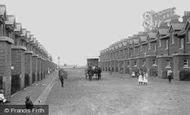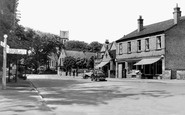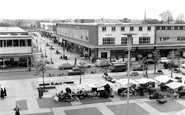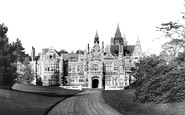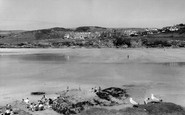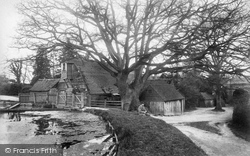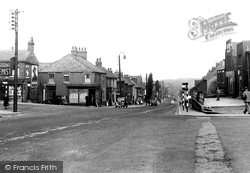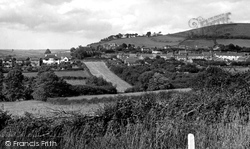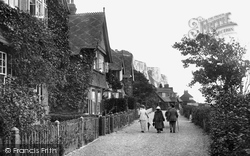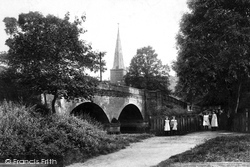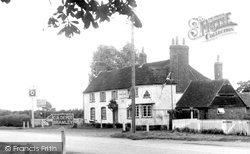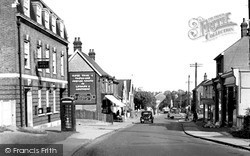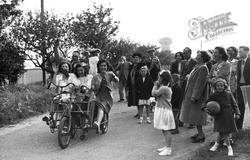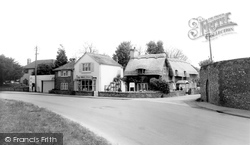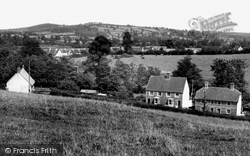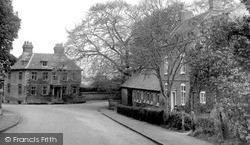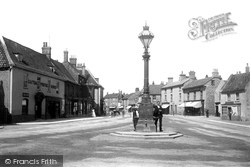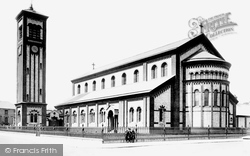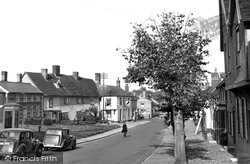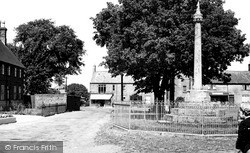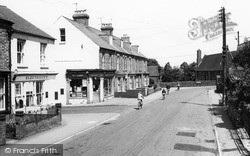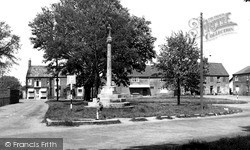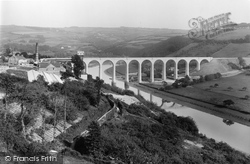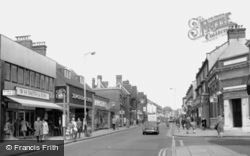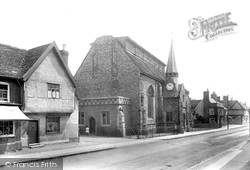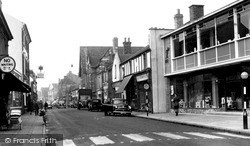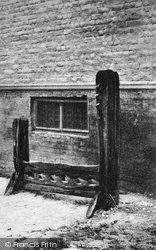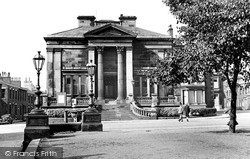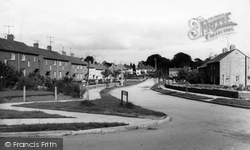Places
Sorry, no places were found that related to your search.
Photos
Sorry, no photos were found that related to your search.
Maps
Sorry, no maps were found that related to your search.
Books
Sorry, no books were found that related to your search.
Memories
655 memories found. Showing results 121 to 130.
Bog Houses
Does anyone remember the Thompsons of No1 Bog Houses? Mary and Jimmy lived there with their daughter Nancy. They ran a pork shop for a time I think in the 40's but it closed during the war years; the shop front remained until around ...Read more
A memory of Cramlington in 1961 by
Canada Road
Before we speak of Canada Road, a street in which I lived, it might be worth mentioning that whilst my father was already a soldier one day he happened to walk into Keys cafe not far from the camp site, and still being only eighteen years ...Read more
A memory of Arundel in 1961 by
Swimming Baths
My twin sister and I used to go to the Oadby baths on a Saturday morning with some friends, and we always used to have a race to see who got in first. Unfortunately one week I forgot to take off my watch before I jumped in and so got a ...Read more
A memory of Oadby in 1961 by
Childhood
In the 1960s I lived in Ogilvie Terrace and spent lots of days wandering happy and safe in Deri. I remember the nut wood, picking whinberries, Doreen's shop, the gas pipes where we balanced and luckily did not come to harm, the horse-shoe rock ...Read more
A memory of Deri in 1960 by
Going To Junior School In Radcliff On Trent In 1960
My dad was in the Canadian Air Force (RCAF) stationed in Langar (born in England though) but my family lived at 16 Douglas Close just outside Radcliffe. I remember walking daily to the ...Read more
A memory of Radcliffe on Trent in 1960 by
Childhood Memories South Park 1960s Approx
I like to remember my childhood in Darlington where I grew up until I moved to Whitley Bay. We used to spend lots of time in the South Park, on the swings, around the rose garden and of course the roller ...Read more
A memory of Darlington in 1960 by
Harlow Market
This was the year we moved to Harlow from Tottenham. The market was much nicer then than it has been since, especially since the council put up those awful permanent stalls. At the corner of the market nearest the clock on the wall was a ...Read more
A memory of Harlow in 1960 by
School Days
Before becoming the home of George Harrison of the Beatles, Friar Park was run as a school by sisters of the St. John Bosco order. This was my first school and I remember having to walk all the way to the main door along the ...Read more
A memory of Henley-on-Thames in 1960 by
Family Holidays
We had many happy family holidays at Polzeath. We always stayed in a bungalow above Tristram Cliff and could walk down across the fields to the beach. In the early days cars were not confined to the area at the top of the beach and ...Read more
A memory of Polzeath in 1960 by
Little Sutton In 1950s And 1960s
What memories your comments conjure. How I loved the 'rec' as a child. We started on the 'baby swings' and progressed to the 'big swings' and see-saw and round-a-bout. The old shelter there was a favourite ...Read more
A memory of Little Sutton in 1960 by
Captions
405 captions found. Showing results 289 to 312.
The village flourmill was powered by two overshot waterwheels. The mill is pictured when it was still in working order.
The main A177 road south from Shincliffe leads to Coxhoe; it may follow the course of an old Roman road.
This is the landscape northwards from the limekilns and quarries north of Wych to the Main Street at Bothenhampton (left to right).
The windows of the grand red brick and tiled houses are wide open, which suggests that a welcome cool breeze is coming in off the sea. The chalk cliffs are part of the White Cliffs of Dover.
Looking south across the River Wey, with a group of children posing for the photographer in front of the wooden Boarden Bridge, the centuries-old crossing point.
The sign in the foreground points to the Army's Central Ammunitions Depot in Bramley Road, which eventually shut in the 1970s.
The Post Office building is solidly built of brick.
For many working people, life after the war was grey and utilitarian. Holiday camps like Caister's offered inexpensive breaks for the whole family, with everything included in the cost.
An isolated village of flint and brick cottages, to the west of Chichester. In the village are Adsdean, a gabled Tudor style house of around 1850, and the church of St Mary, built in 1859.
We are looking north- eastwards from one of the public footpaths across Tarks Hill over Mill Lane and Brister End (centre) to the twin peaks of Honeycombe Wood (top left) and Lillington Hill
The Old House (left) dates from 1678, and it is a prominently sited example of English domestic architecture at its very best.
On the left is a fine Victorian shop- front imposed on a plain brick house. The town is renowned for its public school, Gresham's, founded in 1555 by John Gresham, Lord Mayor of London.
Romanesque Italy arrived in Susans Road, Eastbourne, with this remarkable church in yellow and red brick and terracotta funded by a great-niece of the Duke of Wellington, Lady Victoria Wellesley, and
On the right are Rayner's, an electrical shop, and Thomas the ironmonger. To the right, the long building is the former 15th-century Guildhall.
The Buttercross is to be found in the centre of the village market place. The railings have gone, as have the brick wall and the trees behind it.
Church Street and the roads off to the left are part of a grid of Victorian brick, terraced, straight streets.
The roughly rectangular Market Place (or village green) with its medieval cross is surrounded by attractive houses with shops on the east side.
This new viaduct across the Tamar has just been opened, linking Plymouth to the district around Gunnislake and Callington.
High Street North is a relatively undistinguished and typical London suburban shopping street: the exuberance of the Town Hall complex is forgotten.
Needham, on the main road, was in ancient times a hamlet of Barking, but only became a parish in 1901.
At the Stamford Road end of the street, the newly-built showroom of Tutty's sold kitchen units and appliances. Newman's next door was an old-fashioned ironmongers, which has resisted change.
A four-hour period in the stocks was the usual reward for misdemeanours such as blasphemy, drunkenness, vagrancy or breaking the Sabbath.
The Institute for the Diffusion of Useful Knowledge has stood up well to the passing of time.
Looking down New Street to the Moot Hall, we can see on the right a brick Georgian house where many BBC trainees lodged in the 1960s.
Places (0)
Photos (0)
Memories (655)
Books (0)
Maps (0)



